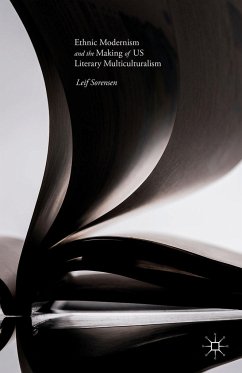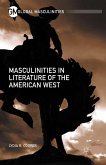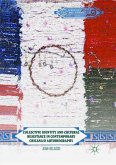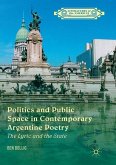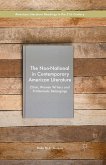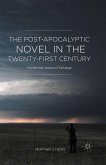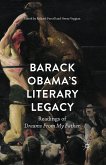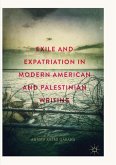Ethnic Modernism and the Making of US Multiculturalism in which ethnic literary modernists of the 1930s play a crucial role. Focusing on the remarkable careers of four ethnic fiction writers of the 1930s (Younghill Kang, D'Arcy McNickle, Zora Neale Hurston, and Américo Paredes) Sorensen presents a new view of the history of multicultural literature in the U.S. The first part of the book situates these authors within the modernist era to provide an alternative, multicultural vision of American modernism. The second part examines the complex reception histories of these authors' works, showing how they have been claimed or rejected as ancestors for contemporary multiethnic writing. Combining the approaches of the new modernist studies and ethnic studies, the book.
Reviewer: Eric Aronoff, Associate Professor of English, Michigan State University
Manuscript Review:
Untimely Emergence: Ethnic Modernism and the Making of U.S. Literary Multiculturalism,
By Leif Sorensen
For the purpose of clarity, let me begin my review by stating emphatically that Sorensen's manuscript is a brilliant project, addressing a complex and fascinating set of questions of literary criticism, literary history and canon formation; the project is carefully conceived, argued with nuance and complexity, and written with clarity and flair. It deserves to be published in its current form, with only the light copyediting that would be a matter of course for any manuscript as it moves through the final stages of production. I strongly recommend that Palgrave publish it.
Sorensen's project uses the lens of critical multiculturalism to reexamine key texts of the modernist period that have, within the past 30 years, been 'recovered' to become canonical both within ethnic studies and 'new modernist' studies - or, as importantly, were 'recovered' as canonical but now are losing their canonical status, or have not been 'recovered' at all - to derive both new understandings of the texts themselves, and to examine the ideological terms and institutional processes that have governed their various 'recoveries.' That is, he is interested in creating both alternative readings of the texts themselves, and alternative understandings of the literary historical processes of canon formation . Within current models of liberal multiculturalism, Sorensen argues, ethnic studies tends to celebrate 'recovery' of lost texts/authors as restoring to health and wholeness a canon in which these authors always properly belonged, or as a making-visible of a coherent tradition of ancestors leading linearly from the past to the present; individual authors, or characters within their texts, in turn tend to be celebrated as 'overcoming' limitations in their own historical periods to find their 'voices.' Similarly, new modernism constructs these recovered texts as part of an expanding, but nonetheless bounded, historical period called 'modernism.' Both of these tendencies, Sorensen argues, 'unify' these authors and texts in ways that 'nullify the untimely energies of recovery and in so doing, reduces the recovered texts' potential to shock and disturb contemporary common sense' (199). Drawing on theorists from Nietzsche to Raymond Williams to Johannes Fabian , Sorensen argues for a literary history and mode of reading that keeps front-and-center the 'untimely' nature of these authors and texts - the way they represent alternative critiques of modernity that are both out of step with mainstream ideologies in their own periods, and also alternatives out of step with the models we would make of them as we seek to fit them into our own critical desires. Instead, Sorensen argues that we must always be aware of recovery as an 'untimely dialectic' (37) in which each positive move in turn contains the uncanny shadow of the alternate possibilities these moves bracket: with each reading of a recovered novel as a bildungsroman triumphantly establishing a previously marginalized self, he argues, alternative, partial, fragmented possibilities within the text are ignored; with each author elevated to canonical status, come other authors whose statuses correspondingly decline or who are never recovered at all.
To make this argument, and to articulate his alternative model of literary history, Sorensen engages the novels of four key authors - Zora Neale Hurston, D'Arcy McNickle, Americo Pardes, and Younghill Kang - as well as these authors' shifting status within the canons of ethnic literature and modernism. In keeping with the bi-focal nature of the project - examining the ways both individual texts are read and the processes of canon formation that allow them to be read in the first place - Sorensen takes the reader on 'two different journeys through the s
Manuscript Review:
Untimely Emergence: Ethnic Modernism and the Making of U.S. Literary Multiculturalism,
By Leif Sorensen
For the purpose of clarity, let me begin my review by stating emphatically that Sorensen's manuscript is a brilliant project, addressing a complex and fascinating set of questions of literary criticism, literary history and canon formation; the project is carefully conceived, argued with nuance and complexity, and written with clarity and flair. It deserves to be published in its current form, with only the light copyediting that would be a matter of course for any manuscript as it moves through the final stages of production. I strongly recommend that Palgrave publish it.
Sorensen's project uses the lens of critical multiculturalism to reexamine key texts of the modernist period that have, within the past 30 years, been 'recovered' to become canonical both within ethnic studies and 'new modernist' studies - or, as importantly, were 'recovered' as canonical but now are losing their canonical status, or have not been 'recovered' at all - to derive both new understandings of the texts themselves, and to examine the ideological terms and institutional processes that have governed their various 'recoveries.' That is, he is interested in creating both alternative readings of the texts themselves, and alternative understandings of the literary historical processes of canon formation . Within current models of liberal multiculturalism, Sorensen argues, ethnic studies tends to celebrate 'recovery' of lost texts/authors as restoring to health and wholeness a canon in which these authors always properly belonged, or as a making-visible of a coherent tradition of ancestors leading linearly from the past to the present; individual authors, or characters within their texts, in turn tend to be celebrated as 'overcoming' limitations in their own historical periods to find their 'voices.' Similarly, new modernism constructs these recovered texts as part of an expanding, but nonetheless bounded, historical period called 'modernism.' Both of these tendencies, Sorensen argues, 'unify' these authors and texts in ways that 'nullify the untimely energies of recovery and in so doing, reduces the recovered texts' potential to shock and disturb contemporary common sense' (199). Drawing on theorists from Nietzsche to Raymond Williams to Johannes Fabian , Sorensen argues for a literary history and mode of reading that keeps front-and-center the 'untimely' nature of these authors and texts - the way they represent alternative critiques of modernity that are both out of step with mainstream ideologies in their own periods, and also alternatives out of step with the models we would make of them as we seek to fit them into our own critical desires. Instead, Sorensen argues that we must always be aware of recovery as an 'untimely dialectic' (37) in which each positive move in turn contains the uncanny shadow of the alternate possibilities these moves bracket: with each reading of a recovered novel as a bildungsroman triumphantly establishing a previously marginalized self, he argues, alternative, partial, fragmented possibilities within the text are ignored; with each author elevated to canonical status, come other authors whose statuses correspondingly decline or who are never recovered at all.
To make this argument, and to articulate his alternative model of literary history, Sorensen engages the novels of four key authors - Zora Neale Hurston, D'Arcy McNickle, Americo Pardes, and Younghill Kang - as well as these authors' shifting status within the canons of ethnic literature and modernism. In keeping with the bi-focal nature of the project - examining the ways both individual texts are read and the processes of canon formation that allow them to be read in the first place - Sorensen takes the reader on 'two different journeys through the s

